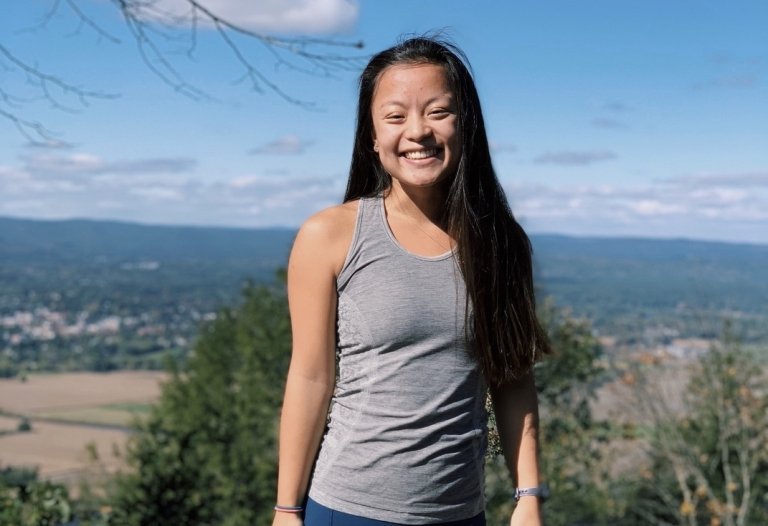Melissa Johnson ’20 on Remote Learning and Community Support
Melissa Johnson ’20 is majoring in psychology and education. She is the recipient of the H. Elizabeth Braun Catalyst for Change Award in recognition of her extraordinary work creating a diverse and inclusive community, in part as a senior community advisor for MacGregor Hall. She spoke with Sasha Nyary on April 15, 2020, from her family home in Falls Church, Virginia.

On the move back home
I’m in my childhood bedroom. Luckily, my parents did not turn it into their home gym quite yet. I was able to make it back in time before that. I’m very fortunate that the decision to go home really wasn’t a question. My parents knew that would be best. I stayed on campus till the end. I tried to soak in those last couple of days. But it really wasn’t a question of whether or not I was going to come home.
On her spring classes
I’m taking American Peoples Since 1865 with Mary Renda. I am taking a sociology class with Patricia Banks on consumer culture. I’m taking multiple psychology classes, one with Jamie Church, Hormones and Behavior, and a psychology lab in Asian-American psychology with Danielle Godon-Decoteau. I’m also currently in an independent study with Jennifer Jacoby.
The transition to remote learning has been very difficult because one of the elements of Mount Holyoke is being together and being able to have discussions. I really appreciate how the professors have been trying to make the classes really accessible by not holding live classes and expecting everyone to show up. We’re doing discussions on the Moodle discussion boards, which is good. I’ve had some really good discussions with my classmates, but it just isn’t quite the same.
In my Asian-American psychology lab we’re doing the best we can, working with her data and working in small groups, but it’s hard to collaborate when people are in different coasts and in different countries. We figured out a way to do Zoom calls and we’ve grouped ourselves where people are in the same time zone to try to make that transition a little bit easier.

On her daily routine
For my own mental health and sanity, I needed to keep some type of schedule. I’m very used to being scheduled at Mount Holyoke. So here at home, I try to wake up consistently around 9 a.m. and then I try to do school work for most of the day, kind of 10 a.m. to 3:30 or 4 p.m. Then I spend time with my family. We play a lot of board games in the nighttime. I am trying to have a very consistent schedule, at least during the week.
On the Mount Holyoke community
I actually think it’s even stronger, to some degree, then when I’m on campus. My friends and I get together every Friday night for a movie, virtually. There’s this amazing support from my peers. I’ve had some really nice Zoom calls with professors who at the beginning of each call are like, how are you doing? Are you okay? It’s not just a business call. They want to make sure that my mental health is good and that we’re not just focusing on the academics. We know that this is much bigger than that. It’s been very supportive. I get emails all the time with “hope you’re having a good day,” both from my professors and then the people I work with in residential life. The community support has been phenomenal.
